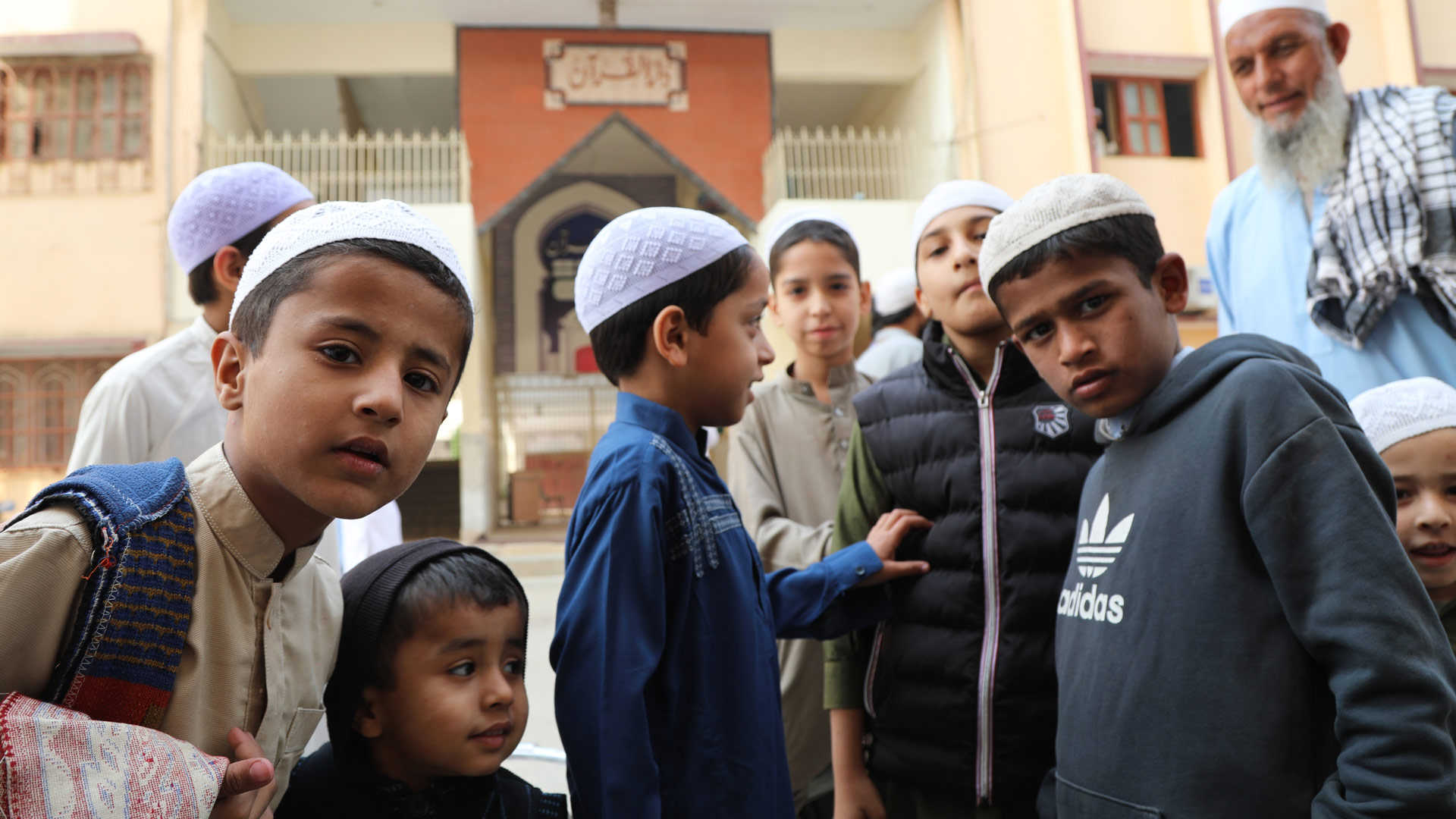ReligionPakistan

Religion / Pakistan
Story by Asim Muhammad Ameen, Rabia Bugti, Aria Nasimi and Rida E Zehra Zaidi
Madrassas play an important role in education in Pakistan, offering religious instruction, while also providing for basic education to millions of children. The madrassa system has come under attack by some Western critics for their association with extremists, and while these cases are rare and exceptional, they have brought strong pressure on Pakistan’s government to reform and control this school system, which until recently has operated largely independently. The government is now in the process of trying to formalize madrassa curricula and bring them under stronger government control. It is estimated that Pakistan has the largest concentration of madrassas in the world — although the Pakistani government does not have official numbers, as many madrassas remain unregistered.
In December 2019, the Global Reporting Program met students, teachers and administrators at a range of schools in and around Karachi, and observed a system of education in which students spend hours memorizing the Quran, while often also getting basic education in applicable skills. Our story begins with a rickshaw driver and his sons outside of the boys’ madrassa in Karachi.